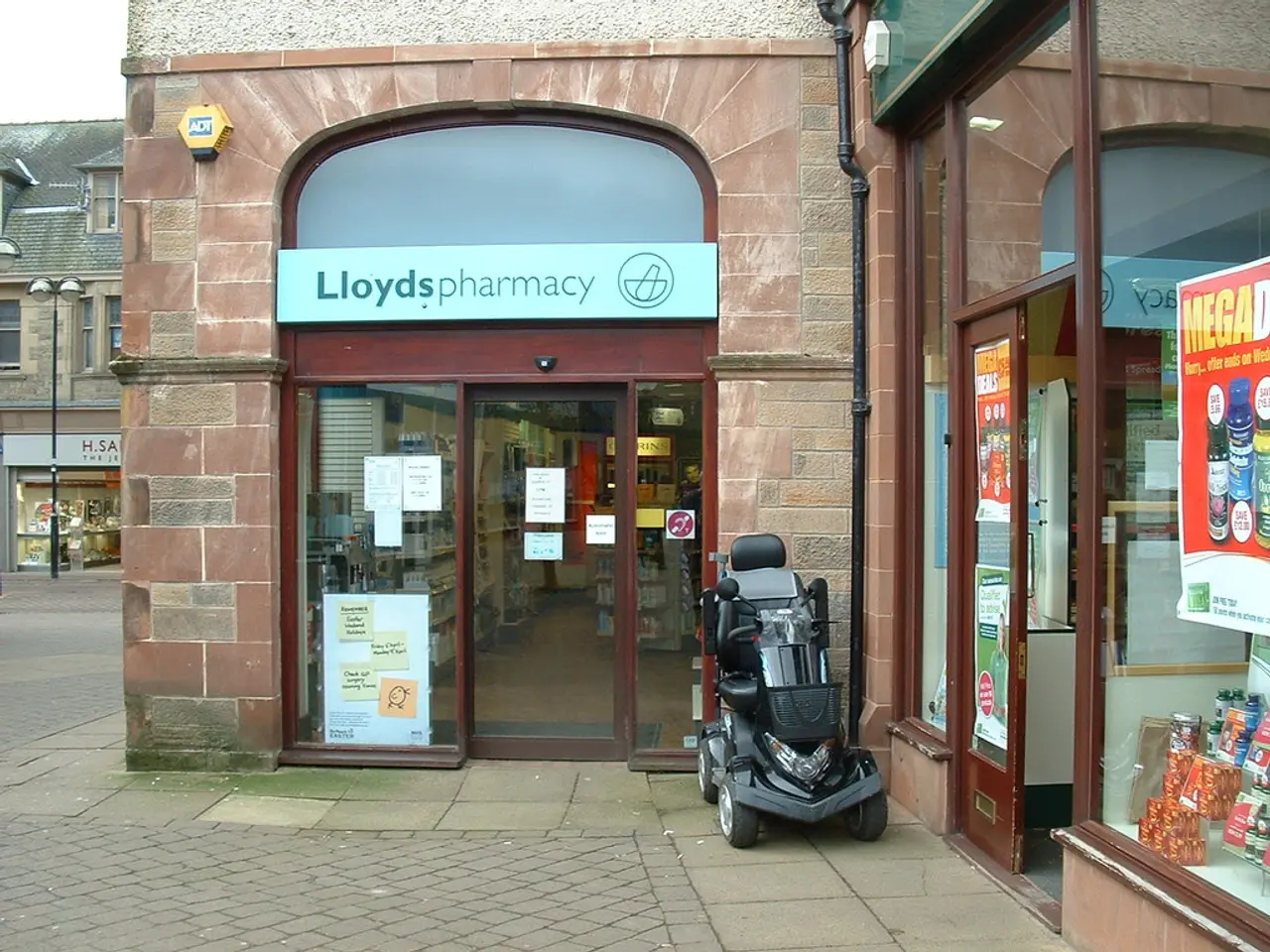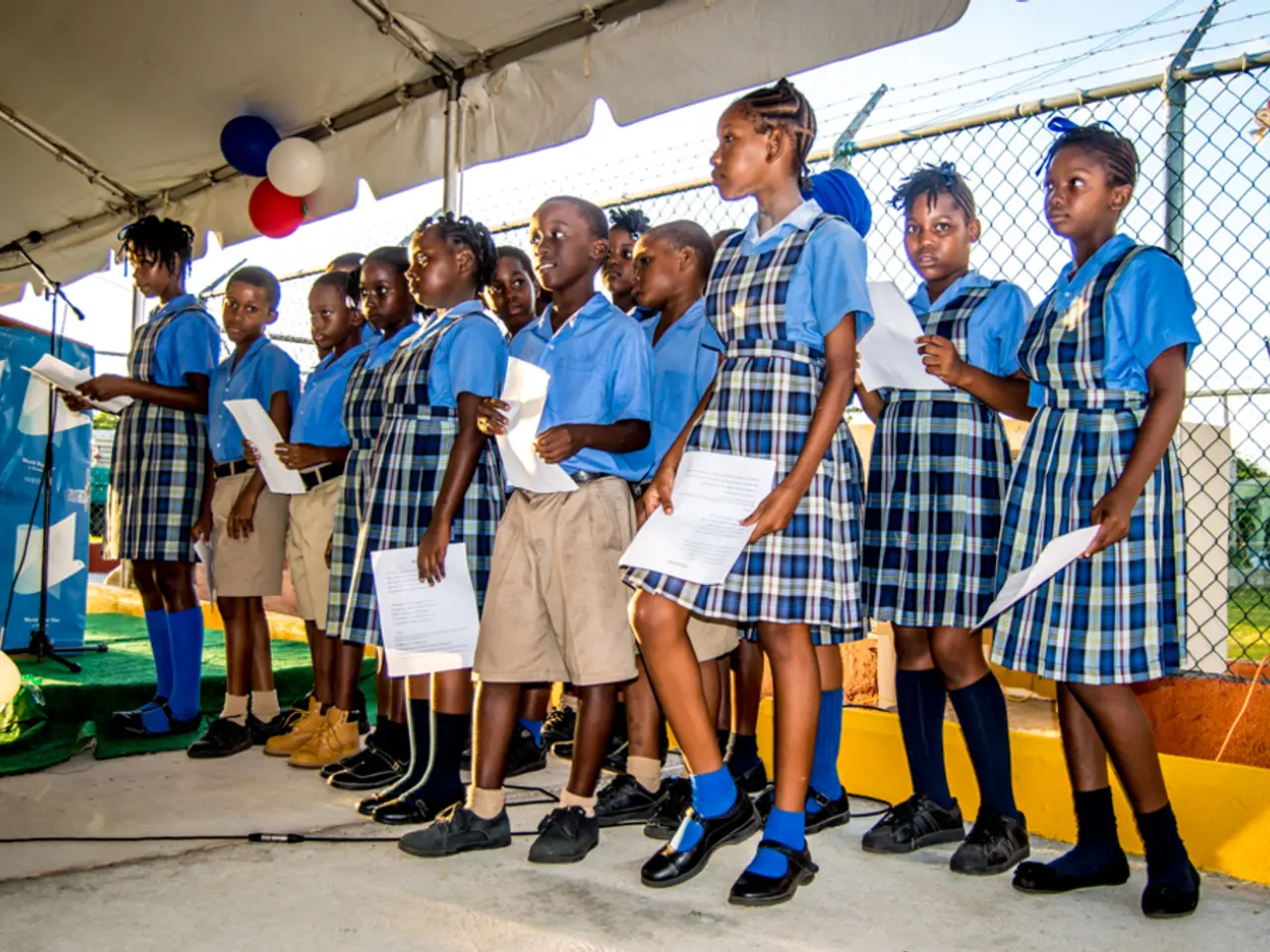Rehabilitation classes in Gia Lai for drug dependents promote successful re-entry into society
In the Gia Lai Province, the Gia Lai Drug Rehabilitation Centre has been making strides in providing a comprehensive rehabilitation programme for its patients. Over the past four months, the centre has been conducting a special literacy class, aimed at helping illiterate inmates make a smoother transition back into society by improving their education.
The programme, designed to convey knowledge in the simplest, most familiar way, has proven to be an effective means of easy learning and progress for the majority of the illiterate patients, who predominantly belong to ethnic groups with disadvantaged backgrounds. These patients, numbering 21, had never attended school before.
The centre's main instructor, Major Võ Thị Diễm Phúc, who has no formal training in teaching, watches educational videos on social media to improve her teaching methods. The classes are held daily, with some slow learners receiving individual tutoring to ensure no one is left behind.
One outstanding student in the maths class is H.V.N, a 39-year-old resident of la Hrú Commune. H.V.N, who can now read and write, has written a heartfelt letter to his parents, expressing his regret for past mistakes and his determination to recover and become a better person. Upon completion of his treatment, H.V.N hopes to find a job.
The literacy class aims to provide addicts with basic reading, writing, and math skills for reintegration into society. The centre plans to collaborate with local schools to help inmates reach at least primary-level education before their reintegration.
Literacy is considered the first step to a better understanding of the world, according to Hùng, and can lead to better life choices. The programme at the Gia Lai Drug Rehabilitation Centre is a testament to this, as all patients can now read, write, and do basic maths thanks to the literacy programme.
While there is no explicit evidence evaluating the effectiveness of informal literacy classes in Vietnamese drug rehabilitation centres, evidence from related contexts supports that informal, culturally-sensitive educational interventions and community engagement can improve rehabilitation and health outcomes in marginalized populations. This suggests that literacy and educational programmes, if integrated informally and community-based, could be beneficial components of rehabilitation.
However, concrete data or published case studies for Gia Lai or similar centres are not publicly documented in the sources reviewed. Further primary research or local Vietnamese government/NGO reports might be needed to fully understand the impact of such programmes.
- The Gia Lai Drug Rehabilitation Centre, recognizing the importance of education in rehabilitation, has been incorporating AI-assisted learning into their special literacy class, utilizing educational videos from social media to enhance teaching methods for their illiterate patients.
- To further enhance the learning experience of their patients, the centre is considering integrating education in science, health-and-wellness, mental-health, therapies-and-treatments, education-and-self-development, and other relevant topics into their curriculum.
- With improved literacy skills, the patients of the Gia Lai Drug Rehabilitation Centre can now access various resources for their personal growth and mental health, such as online courses and self-help books.
- In light of the promising outcomes from the literacy class and the potential benefits of educational programs in rehabilitation, the centre plans to conduct further research to evaluate the effectiveness of these methods in long-term rehabilitation and reintegration, with a focus on collecting concrete data and publishing case studies.




